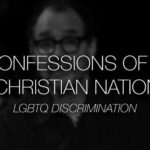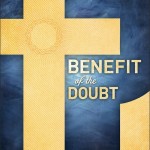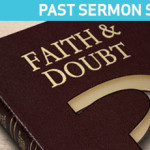We run our website the way we wished the whole internet worked: we provide high quality original content with no ads. We are funded solely by your direct support. Please consider supporting this project.
FAQs
Do you consider yourself an “Evangelical Christian”?
I hold to a high view of biblical inspiration and most of my theological views are in line with what would be considered “evangelical.” So in this sense, I consider myself an “evangelical.” But the word “evangelical,” as well as the word “Christian,” has become associated with many things that are radically inconsistent with the example of Jesus’ life, which we are to emulate. So I’m very hesitant to identify myself with either term until I know what my audience means by them.
Do you deny that God knows the future?
This is the most common misconception regarding Open Theism. I believe God knows everything, including the past, present and future. But I also believe the future is different from the past in that the future contains possibilities while the past is irrevocably settled. So I hold that, precisely because God’s knowledge is perfect, God knows the future exactly as it is – that is, as containing possibilities. Some things about the future are “maybes,” and God knows them as such. (See Open Theism: Basic Questions).
Are you a heretic?
Some people charge me with being a “heretic” because I believe that the future is partly “open.” But the church has never made beliefs like this a test for orthodoxy. There are a number of people in church history who have held to an open view of the future, and none were accused of heresy on this account. (See Isn’t Open Theism outside of historic orthodoxy?).
Are you a “process” theologian?
I think process philosophy has some good things to teach us, but I’m not a process theologian. Among other things, process philosophy typically denies creation ex nihilo (creation from nothing), denies God’s omnipotence, denies God can respond to prayer and intervene in miraculous ways in history and denies God will once and for all overcome evil in the future. I disagree with all of these points. On the other hand, process philosophy holds that the future is partly comprised of possibilities, and I agree with this. But this doesn’t make me a process theologian. This is like calling Calvinists Muslim simply because they happen to share the Koran’s belief that God determines everything.
Do you think abortion is okay?
I think abortion is a terrible evil. I am opposed to all violence against living creatures except when absolutely necessary, and I am opposed to all violence against humans even when it’s deemed “necessary.” Where people get my view confused is that I don’t think a person’s convictions about abortion, or any other matter, unambiguously translate into a particular way of participating in the political process. I thus will not use my position as a pastor to encourage people to vote a certain way. The Kingdom way of addressing abortion is not about voting a particular way. It’s about making personal sacrifices for women with unwanted pregnancies to help them go full term and either raise the child or place the child for adoption. (See What is your stance on abortion?).
Do you have a “life verse” and personal “mission statement”?
My “life verse” changes as my life evolves, but for the last decade or so I’d say that Ephesians 5:1-2 has been my central focus: “Be imitators of God. Live in love, as Christ loved you and gave himself for you…” I also have a personal mission statement I’ve lived by for the last two decades. It helps me prioritize my life. It’s this: “I want to make as qualitative and as quantitative an impact for the Kingdom of God as is humanly possible before I die.”
Who are your role models?
In 1997 I first had the chance to minister alongside Roger Forster, leader of Ichthus Christian Fellowship in the United Kingdom, and I’ve had the privilege of returning several times since then. I greatly admire the way Roger combines a great mind with a beautiful sacrificial life.
Who are your favorite theologians?
This changes from time to time. Right now my favorite is Jacques Ellul. Past favorites have been Soren Kierkegaard, Jonathan Edwards, Dietrich Bonhoeffer, Karl Barth, Dallas Willard, John Yoder and Vernon Eller. (I know Edwards stands out like a sore thumb in this list, but that’s because most people know the Calvinist preacher Edwards, not the philosophical theologian Edwards. The latter Edwards is brilliant! The former, in my humble opinion, not so much.)
Why did you attend Yale and Princeton?
Some people learn best in a homogeneous environment, where most people think like they do. But others learn best in environments where most people do not agree with them. I’m definitely in the latter category. Had I gone to conservative evangelical seminaries and graduate schools, I suspect I might have lost my faith. But there were other factors as well that led me to these two schools. For example, I was really into C. S. Lewis, Soren Kierkegaard and Ludwig Wittgenstein when I graduated from the University of Minnesota. One of the world’s foremost scholars on all three (Paul Holmer) taught at Yale. For my doctorate, Princeton offered a unique program that combined historical with contemporary theology that greatly appealed to me.
What’s your greatest weakness?
Impatience. From as early as I can remember I’ve had a rather acute sense that life was finite (see my Spiritual Journey). On matters that I feel are very important, I sometimes get sucked into a “now or never” mindset that isn’t entirely healthy.
What are your hobbies?
I enjoy playing drums, running a little, watching movies, hanging out with friends and compulsively reading.
Related Reading

Spiritual Journey
Over the years I’ve given bits and pieces of my testimony about how I came to Christ in sermons and books, but I’ve never woven all these pieces together into a single narrative. Many have asked me to do this, and so what follows is an account of the spiritual journey I went through in…

Got Questions About God?
Do you have a friend who’s got questions about God? Greg’s father was an atheist who had lots of questions. Over an extended period, Greg and his father wrote letters to one another where they talked honestly about them. The questions include: Why is the world so full of suffering? Why does God create earthquakes…

Confessions of a Christian Nation – LGBTQ Discrimination
Here is the second installment of the Confessions series filmed by Rex Harsin. We pray that it will bring healing and opportunities for reconciliation.

Benefit of the Doubt Is Here!
Benefit of the Doubt is finally here and you should definitely get yourself a copy! Frank Viola interviewed Greg about the book recently and you can read it over on Frank’s blog Beyond Evangelical. In fact, Frank is so enthusiastic about the book that he added it to his Best 100 Christian Books Ever Written list. Wow. Also,…

Listening to Music, and Some New Developments
Over the last four months, I’ve spent one to two hours a day listening to music. I’ve obviously had to cut back on my writing/reading, but I feel like I’m supposed to do this, at least for this season of my life. It’s not just that I enjoy the music, though I obviously do. But…

Past Sermon Series: Faith & Doubt
Faith is sometimes understood as the lack of doubt. As a result, doubt can be seen as the enemy of faith. But Biblical faith can withstand doubt and even be strengthened by it. God wants His people to wrestle with Him on the things that matter in their lives. We must not be afraid of struggling with deep…
